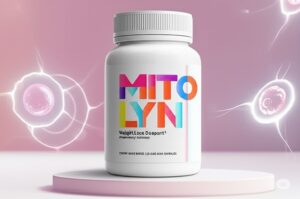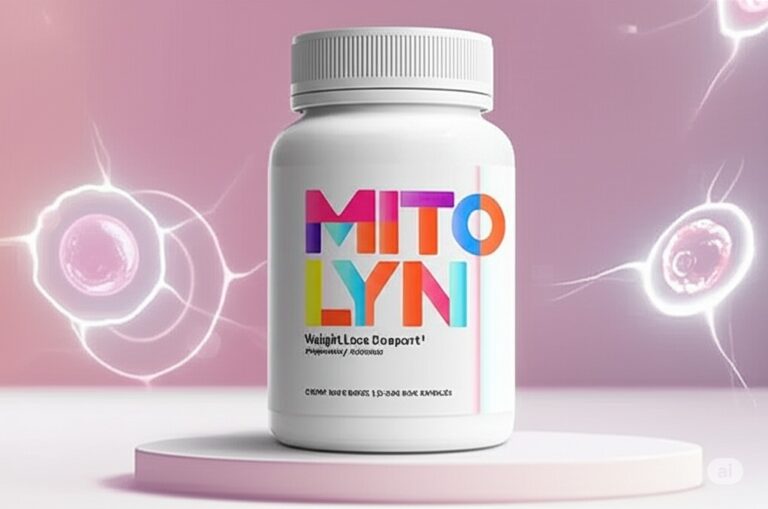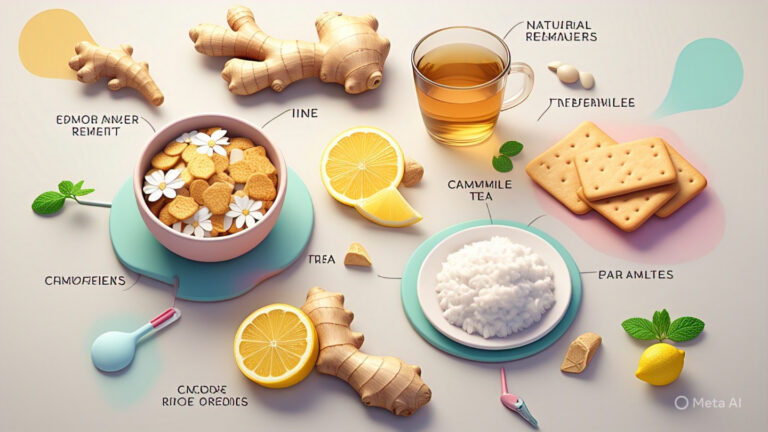Estimated reading time: 9 minutes
- Home remedies offer affordable, gentle ways to soothe canker sore discomfort.
- Techniques include saltwater rinses, honey, aloe vera, and more—many use items already at home.
- Prevention and safe application are crucial; always monitor for persistent or worsening symptoms.
- Consult professionals when sores linger or severe symptoms appear.
- Introduction to Canker Sores and Home Remedies
- What Are Canker Sores? Causes and Symptoms
- Why Choose Home Remedies for Canker Sores?
- Top 10 Evidence-Based Home Remedies for Canker Sores
- How to Apply Home Remedies Safely
- Preventing Future Canker Sores: Tips and Tricks
- Common Myths About Canker Sore Remedies
- When Home Remedies Aren’t Enough: Seeking Professional Help
- Frequently Asked Questions (FAQs)
- Additional Resources for Oral Health
Canker sores, those small yet nagging ulcers in your mouth, can turn simple tasks like eating or talking into a painful ordeal. Known as aphthous ulcers, they often appear on gums or inside cheeks, disrupting daily comfort for many. In fact, nearly 25% of people experience these sores at some point, according to the Mayo Clinic, making the search for relief a common journey.
This is where home remedies come in—they offer a natural, often budget-friendly path to ease the sting. Many prefer these solutions over store-bought options for their simplicity and accessibility. At WikiHomeRemedies, we’re committed to guiding you with care, leaning on evidence from trusted sources like WHO and WebMD to ensure safe, reliable advice.
In this guide, we’ll walk you through understanding canker sores, explore natural ways to soothe them, share safety tips, suggest prevention strategies, and clarify when it’s time to see a doctor. Let’s start this journey to relief together, harnessing nature’s healing touch.
Canker sores are tiny, shallow ulcers that form inside the mouth, often on the gums, tongue, or inner cheeks. They aren’t contagious, unlike cold sores, but they can throb with discomfort, making everyday activities a challenge. These sores typically range from a pinpoint to about an inch (2.5 centimeters) wide, though most stay small.
Several factors can trigger them. Stress often plays a role, as do hormonal shifts during menstruation for some. Eating acidic or spicy foods, like citrus fruits or hot peppers, can irritate the mouth lining, while minor injuries—say, from biting your cheek or harsh brushing—may spark an outbreak. Certain health conditions or food sensitivities might also contribute.
You’ll likely notice a sharp or burning pain first. The sore itself shows as a white or yellow center framed by a red, inflamed border. For most, they heal in a week or two, but if you face severe discomfort, fever, or sores lingering beyond three weeks, it’s wise to seek medical advice, as WebMD suggests. Understanding this sets the stage for finding relief.
Turning to home remedies for canker sores makes sense for many. These solutions often use items already in your kitchen or bathroom, saving you a trip to the store. Beyond convenience, they tap into nature’s offerings, providing gentle ways to dull the pain without synthetic chemicals.
Cost is another draw. Mixing a saltwater rinse or dabbing on honey doesn’t dent your wallet like some over-the-counter gels might. Plus, when backed by insights from sources like Healthline, these methods carry a sense of grounded reliability that resonates with those seeking straightforward care.
Still, they aren’t a cure-all. Severe sores or ones tied to deeper health issues may need more than a home fix. At WikiHomeRemedies, we prioritize your well-being, focusing on safe, tested approaches. Let’s explore remedies that can help, while keeping realistic expectations in mind.
Navigating the discomfort of canker sores doesn’t have to be complicated. Below, you’ll find ten natural remedies, each rooted in practical use and supported by credible sources like Mayo Clinic and Healthline. We’ll explain why they work and how to use them, ensuring you can try them with confidence.
A saltwater rinse soothes by calming irritation and cleansing the sore. It draws out fluids from the ulcer, which may ease swelling. The Mayo Clinic notes its long-standing use for minor oral issues.
To prepare, dissolve one teaspoon of salt in a glass of warm water. Swirl this mix in your mouth for about 30 seconds, then spit it out. Repeat two or three times a day until the pain fades. It’s a simple, everyday solution with no hidden risks. For other dental issues, consider exploring our guide to Home Remedies for Toothache.
Baking soda can balance the mouth’s acidity, which may lessen the sting of a canker sore. Its mild abrasive nature also helps clean the area. Medical News Today highlights its potential for temporary relief.
Mix a small amount with water to form a paste. Dab it onto the sore, let it sit for 10 minutes, then rinse with lukewarm water. Use this once or twice daily, but don’t overdo it—too much can irritate healthy tissue.
Honey brings natural antibacterial and anti-inflammatory effects to the table. It creates a protective layer over the sore, keeping germs at bay while soothing tenderness. Healthline points to its historical use in wound care.
Choose raw, unprocessed honey for the best results. Apply a thin layer directly on the sore using a clean finger or cotton swab. Do this three or four times a day. It’s a sweet, gentle way to find comfort.
Aloe vera offers a cooling touch that can quiet the burn of a canker sore. Its gel promotes healing by hydrating the tissue. Healthline often mentions its role in calming skin and mucosal irritations.
Snip a fresh aloe leaf, extract the gel, and apply it to the sore. Leave it for about 10 minutes before rinsing with water. Repeat twice daily. If using store-bought gel, ensure it’s pure with no added sugars.
Coconut oil carries antimicrobial traits that may ward off bacteria around a sore. It also forms a barrier to shield the area from further irritation. Prevention magazine notes its growing popularity for oral care.
Spread a thin coating of virgin coconut oil over the sore with a clean finger. Reapply two or three times throughout the day. It’s a smooth, subtle option that works with minimal effort.
Chamomile tea has calming properties that might reduce inflammation in the mouth. Its mild nature makes it suitable for a tender sore. Medical News Today recognizes its traditional use for soothing discomfort.
Brew a cup of chamomile tea, let it cool to room temperature, then swish it around your mouth for one minute. Spit it out, and repeat twice daily. This rinse feels like a quiet moment of care.
Yogurt containing live cultures can help balance the bacteria in your mouth, possibly aiding healing. It also cools the sore on contact. Prevention suggests it as a dietary ally for oral health.
Eat a small spoonful of plain, unsweetened yogurt, or apply it directly to the sore for a few minutes before swallowing. Do this once or twice a day. It’s nourishment and relief in one.
Turmeric holds anti-inflammatory benefits thanks to curcumin, its active compound. Applying it may dial down redness and pain. Reader’s Digest often lists it among natural healing aids.
Blend a pinch of turmeric powder with water into a paste. Place it on the sore for five minutes, then rinse gently. Use this once daily, as overuse might stain teeth or gums.
Hydrogen peroxide cleanses the sore by killing bacteria, which can prevent worsening. It must be diluted to avoid harm. Everyday Health stresses diluting to a safe strength with a caution against swallowing.
Mix a 3% hydrogen peroxide solution with equal parts water. Swish for 15-20 seconds, then spit it out and rinse with plain water. Limit this to once a day to prevent tissue damage.
Ice numbs the area, cutting through sharp pain while curbing swelling. It’s a quick fix for sudden discomfort. Good Housekeeping often recommends it for instant oral relief.
Wrap an ice cube in a clean cloth or paper towel. Hold it against the sore for one to two minutes, taking breaks if it feels too cold. Use as needed, especially during intense flare-ups.
Trying home remedies for canker sores is straightforward, but care matters. Start with clean hands—wash them thoroughly before touching your mouth or preparing mixtures. Use clean utensils or swabs to apply pastes or gels, reducing the chance of introducing germs, as WebMD advises.
Pay attention to how your body reacts. If a remedy like hydrogen peroxide causes more stinging or redness, stop using it. Don’t overuse any solution—stick to the suggested frequency to avoid irritating healthy tissue. For substances like turmeric or aloe, test a small amount on your skin first to rule out reactions.
Keep an eye on the sore’s progress. If pain worsens or new symptoms pop up, pause the remedy. Safety comes first, and listening to your body ensures you’re on the right path while exploring these natural options.
Keeping canker sores at bay starts with small, mindful changes. Your diet plays a big part—steer clear of acidic fruits like oranges or spicy snacks that might trigger irritation. The Cleveland Clinic ties certain foods directly to outbreaks, so opting for softer, milder meals can make a difference.
Oral care matters too. Use a soft-bristled toothbrush and brush gently to avoid scraping your gums or cheeks. Floss daily, but with patience, to prevent tiny injuries. Stress can also spark sores, so carve out time for calming practices—perhaps a short walk or deep breathing. Manage stress effectively with our Stress and Health guide.
Don’t overlook hydration and nutrition. Drink plenty of water, aiming for 8 cups (about 2 liters) daily, and include foods rich in Vitamin B12 or iron to support mouth health. These steps build a foundation to lessen future discomfort.
Misinformation about canker sores floats around, often leading to risky choices. One stubborn belief is that toothpaste heals sores. In truth, many toothpastes contain harsh agents like sodium lauryl sulfate that can worsen irritation, as Healthline explains.
Another misconception suggests applying harsh chemicals or alcohol directly to sores speeds healing. This can harm delicate tissue, delaying recovery. Some even think canker sores are contagious, but they aren’t—unlike viral cold sores, they stem from internal triggers, not person-to-person spread.
Stick to what’s proven. Random online tips might sound tempting, but they often lack backing. Trusting guidance rooted in evidence keeps you safe while seeking relief.
Sometimes, home remedies fall short, and that’s okay. If a canker sore lingers beyond three weeks, causes unbearable pain, or comes with fever, it’s time to see a professional. Larger sores—over half an inch (1.3 centimeters)—or ones spreading rapidly also signal a need for help, per the Mayo Clinic.
A dentist or doctor might suggest over-the-counter gels that numb pain or reduce inflammation. For tougher cases, prescription treatments like corticosteroid mouth rinses could step in. These options target stubborn sores or underlying issues home fixes can’t touch.
Don’t hesitate to reach out if something feels off. Persistent or worsening symptoms might point to conditions beyond a simple sore. Getting expert input ensures you’re not overlooking a deeper concern.
Most remedies, like saltwater rinses or honey, can be safe for older kids with adult supervision. But avoid hydrogen peroxide or strong mixes for young ones, as swallowing risks exist. Always check with a pediatrician first.
Repeated outbreaks often tie to stress, hormonal swings, or food triggers like acidic items. In some cases, deficiencies in nutrients like iron or B12 play a role. Tracking patterns might reveal your specific cause.
Skip citrus fruits, tomatoes, spicy dishes, and crunchy snacks like chips. These can sting or scrape the sore, slowing healing. Opt for soft, bland foods instead.
Saltwater soothes gently and cleans without harshness, fitting most users. Hydrogen peroxide fights bacteria but risks irritation if overused. Start with saltwater for milder, safer comfort.
- Mayo Clinic –
Canker Sore Overview: A thorough look at causes, treatments, and when to seek care. - WebMD –
Oral Health Basics: Practical tips for maintaining a healthy mouth beyond just sores. - Cleveland Clinic –
Nutrition and Oral Health: Insights on foods that support healing and prevention. - WikiHomeRemedies –
Natural Oral Health Tips: Discover more ways to care for your mouth using nature’s gifts. - WikiHomeRemedies –
Stress and Health: Learn how managing stress can reduce sore Triggers.
At WikiHomeRemedies, we’re here to walk with you, offering guidance rooted in care and evidence. Dive into these resources to keep your path to healing steady and informed.










